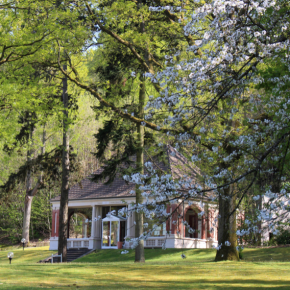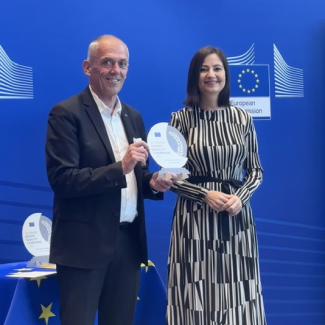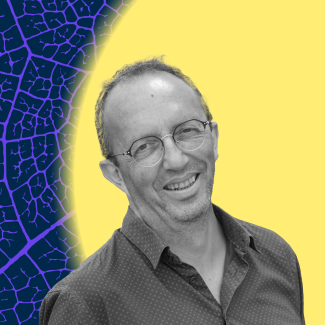
A new Fields Medallist at the Institut des Hautes Études Scientifiques
With 8 Fields Medallists since its creation, the Institut des Hautes Études Scientifiques (IHES) in Bures-sur-Yvette is one of the most recognized global institutions in mathematics. We visit the institution with its director, Emmanuel Ullmo.
The mathematician Hugo Duminil-Copin, who has served as a permanent Professor at the Institut des Hautes Études Scientifiques (IHES) since 2016, has just been awarded the prestigious Fields Medal, the highest distinction in mathematics. What was your first reaction?
Emmanuel Ullmo:1 We are extremely proud and happy for him. Hugo Duminil-Copin is a probabilist that was recruited by the IHES at the age of 31. He already showed his capacity to further his research, which focused on the mathematical branch of statistical physics. He produced first-rate results, with a charisma recognized by the community that he carries along with him. He is a major scientist by virtue of his production and personality, as he inspires others greatly all while being generous with his time and collaborations. This medal is greatly deserved.
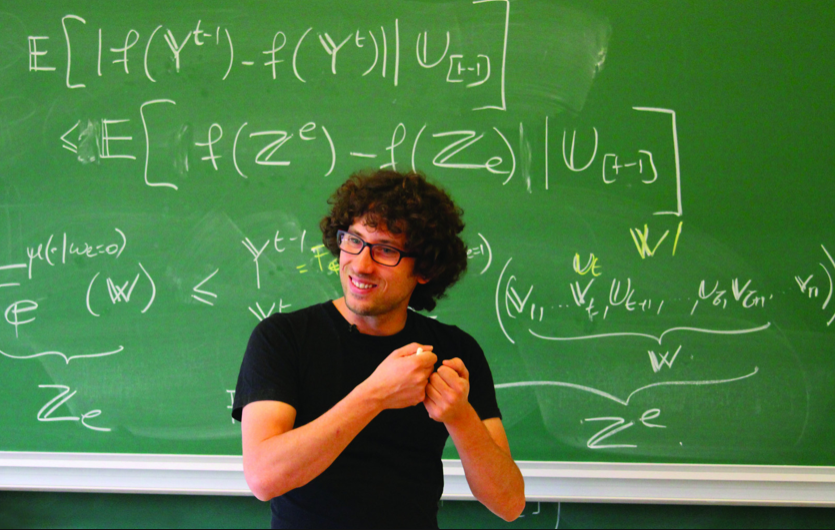
It is one more medallist for the IHES, which is among the world's institutions that can boast the most Fields Medals. How would you present this institute?
E. U. : A haven of peace amid a superb wooded estate in Bures-sur-Yvette (Essonne), the IHES is a small institute that currently has a faculty of six permanent professors working at the highest international level. Of the 12 professors in mathematics recruited at the IHES since its creation in 1958, 7 have received the Fields Medal, and 3 the Abel Prize2 ! For its recruitment, the IHES bets on emerging scientists—with an average recruitment age of 31—who we believe show great potential.
The institute also welcomes high-level researchers at its Alexander Grothendieck Laboratory,3 along with postdoctoral fellows and doctoral students from l'Université Paris Saclay. Our scientists are very attached to the institute, and many complete very long stays here, if not an entire career. When our permanent professors retire, they keep an office at the IHES, such as the mathematician Mikhail Gromov, who was awarded the Abel Prize in 2009.
The IHES also has a highly developed visitors programme, hosting 200 international scientists per year for average stays of two and a half months, with housing and offices available for their entire stay. This programme is very flexible, and we expect nothing in return from our invitees. The goal is to attract those who produce new and original science, so that they can directly discuss with their peers and explain their approach, a method that is much more effective than reading publications.
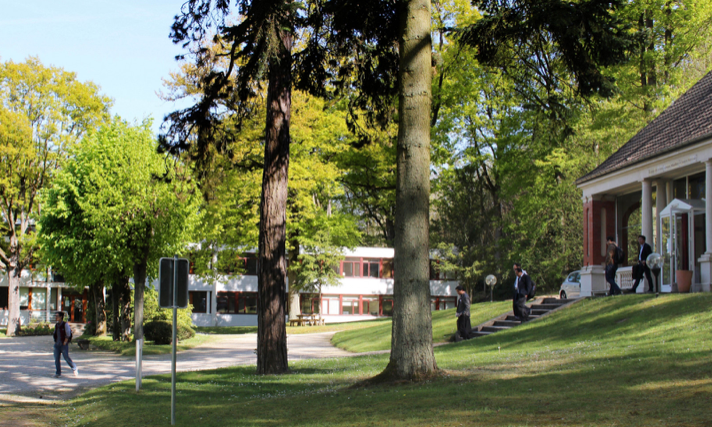
How does your selection process work?
E. U. : There are no calls for applications for permanent professor positions. The Institute's Scientific Council continually works to identify the most promising researchers in mathematics and theoretical physics, and conducts a rigorous examination process before extending a definitive offer. However, the salary remains our primary difficulty in the face of international competition. For all that, a number of people have chosen to join us, knowing they would have complete freedom, that they would be spared administrative constraints, and that they could surround themselves with a team. These advantages are familiar to the community, and contribute to our reputation. The living environment offered by our magnificent institute amid a wooded estate, along with the proximity of the Université Paris-Saclay ecosystem, are also obviously beneficial factors.
We also receive applications from visitors and postdoctoral fellows, with the Scientific Council making selections twice per year. The IHES is very attractive, and even more so in the fields in which our scientists work, such as algebraic geometry, which is very characteristic of the institute.
The IHES is a founding member of the new Université Paris-Saclay, which assumed its current form in 2019. What does this new partnership provide?
E. U. : It is highly advantageous on numerous levels. For example, it gives us international visibility: the ARWU, or the famous "Shanghai ranking," ranked l'Université Paris-Saclay number one worldwide in mathematics two years in a row, in 2020 and 2021. The collaboration also offers more possibilities for professors to supervise theses in collaboration with doctoral schools such as the Jacques Hadamard Doctoral School of Mathematics, or the Ile-de-France Doctoral School of Physics. We have also emphasized partnerships by organising events such as the Lectures series, which have become anticipated and prestigious meetings, in addition to seminars and the start of the school year for masters students and doctoral schools.
How is the IHES positioned within the international community?
E. U. : The institute is distinctive in this regard. It was modelled after the Institute for Advanced Study at Princeton, in the United States, although that institute includes more disciplines than us. However, this interdisciplinary dimension is not absent from the IHES, where there is true interaction between mathematicians and physicists. Only a small number of other institutes abroad, such as the Korea Institute for Advanced Study in Seoul, function in a comparable manner as we do.
In France, the CIRM4 and the Henri Poincaré Institute propose a different offer, proceeding via major conferences and thematic semesters, respectively. Unlike the IHES, neither of these two institutions have laboratories. All three are part of the Carmin Labex5 —along with the International Centre for Pure and Applied Mathematics (CIMPA)—seeking to create a major mathematical apparatus. One of the outgrowths of this Labex has been the creation of carmin.tv, an audiovisual broadcasting platform for mathematics and its interactions with other sciences, which promotes exchange within the discipline, all while taking part in open science.
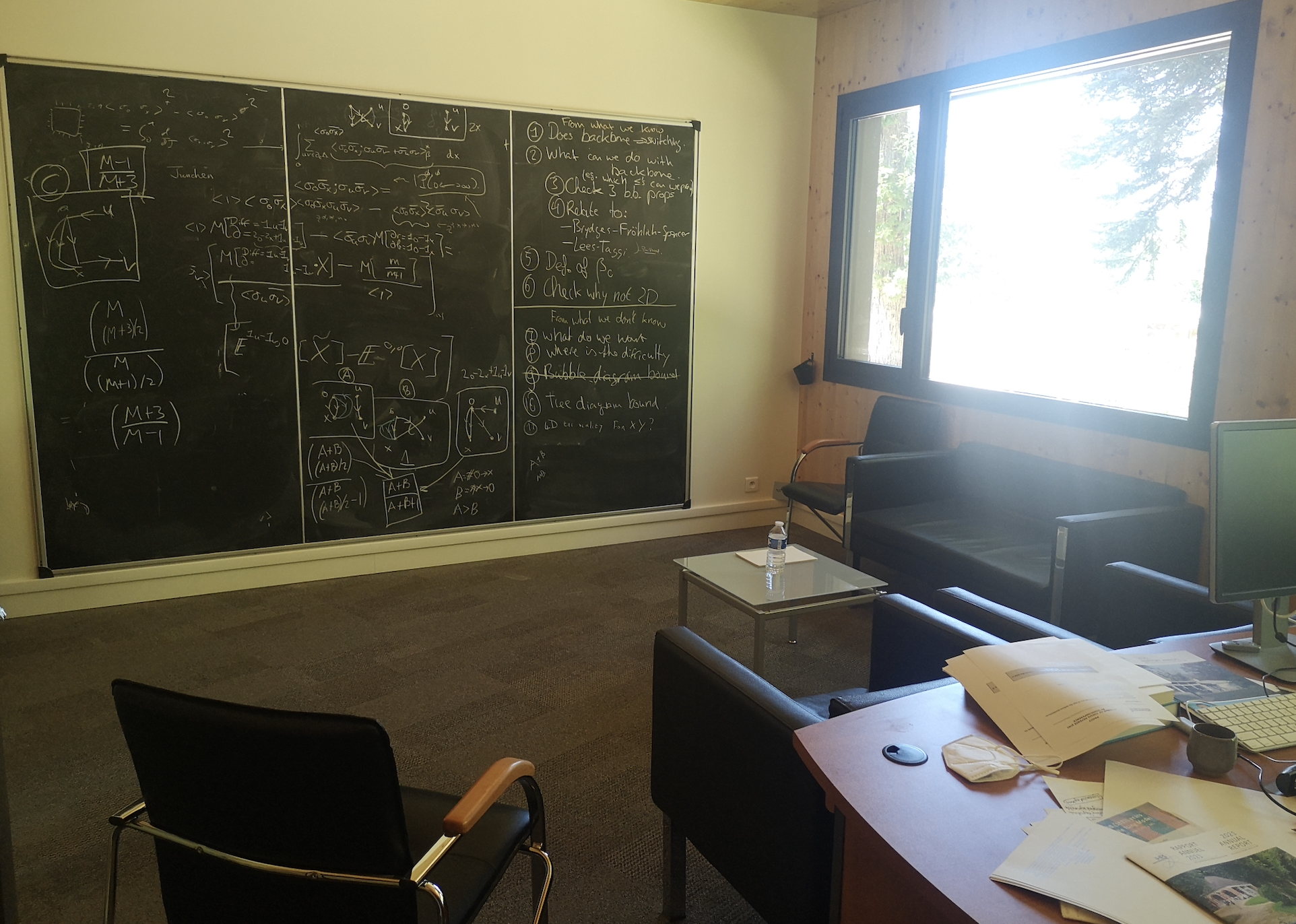
You have been directing the institute for 9 years, how has it changed?
E. U. : We have developed a number of initiatives that are already at the contract stage. Postdoctoral fellows were considered visitors, and as such were not employees of the institute, which has since changed. We also offer new types of tenure-track professorships over five years, which are very well paid and prestigious. The leading Chinese probabilist Yilin Wang joined the IHES this year thanks to such a contract. As indicated above, we emphasized our interactions with l'Université Paris-Saclay, and also developed our events programme, for instance with our summer schools, in which a scientific committee of experts meets one hundred researchers at IHES to present the state of research in a particular field. This model is very popular with both the organisers and participants.
We also promote diversity and inclusion, for instance through the adoption of an Ethics Charter by our Scientific Council. During my term, the Scientific Council expanded with the arrival of three excellent women mathematicians at the institute (Fanny Cassel, CNRS Senior Researcher; Laure Saint-Raymond, the first permanent female professor at the IHES; and Yilin Wang). We also have many projects for the future, and are enhancing our attractiveness, notably with a view to recruiting new permanent professors.
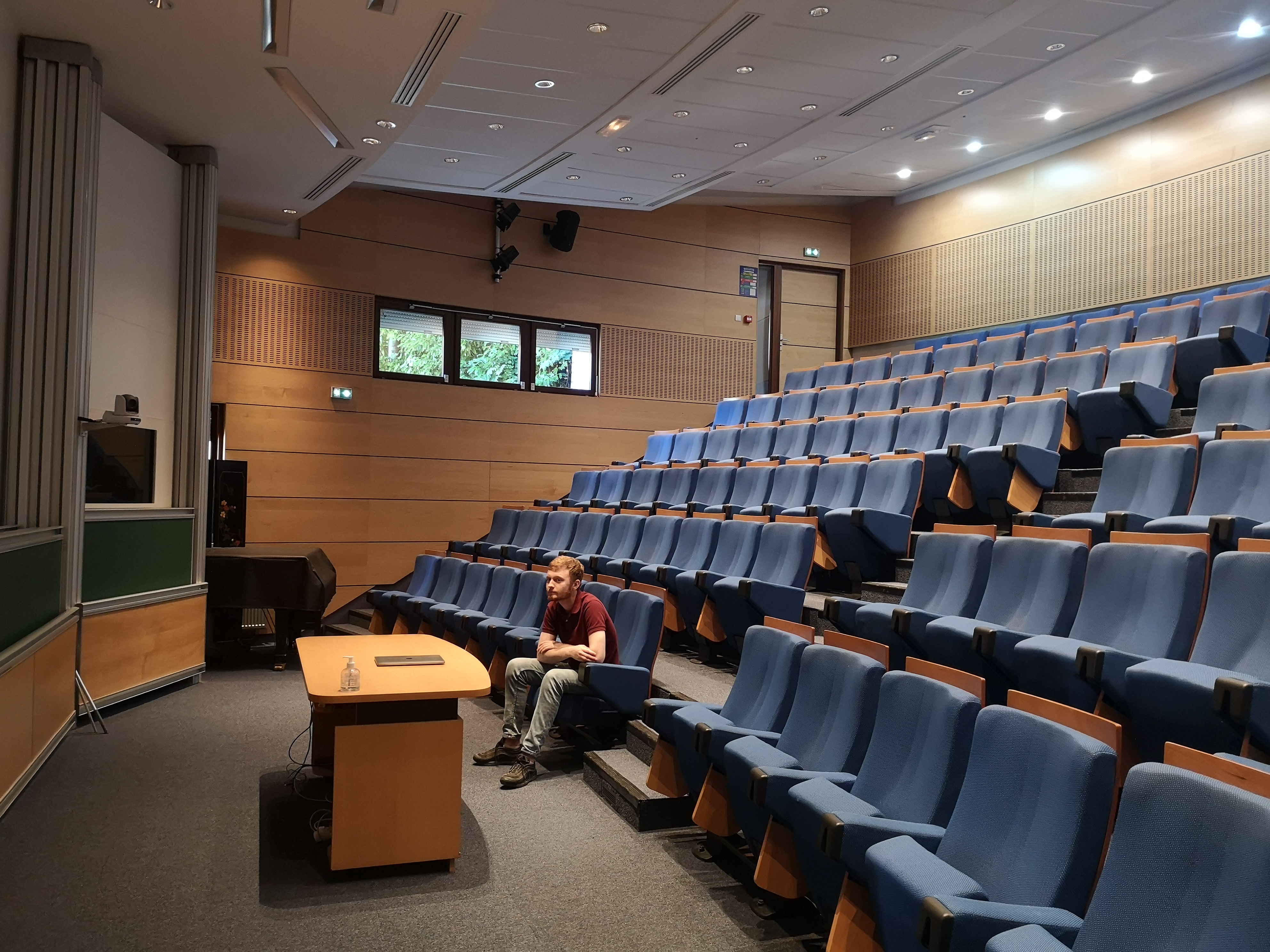
What is your view of the role of French mathematics in the world?
E. U. : French academic mathematics continues to do well. For example, in 2021 l'université Paris-Saclay and Sorbonne Université came in first and third respectively in the Shanghai ranking. There is a tremendous concentration of high-level mathematics in France, with great wealth within laboratories in the provinces as well. We are one of the nations with the most Fields Medallists. This demonstrates a genuine tradition of mathematics at the highest level. It is nevertheless important to underscore the dichotomy between excellent academic mathematics and scholastic mathematics, in which the country is lagging. Perhaps there is a lack of scientists in the circles around political decision makers to stress these concerns?
- 1Emmanuel Ullmo is a mathematician specializing in arithmetic and algebraic geometry. He has been director of the IHES since 2013.
- 2The Abel Prize is one of the two most prestigious awards in mathematics along with the Fields Medal. Both are considered as equivalent to a Nobel Prize, which does not exist for this discipline.
- 3CNRS/IHES.
- 4Centre International de Rencontres Mathématiques.
- 5Laboratory of Excellence. It is one of the instruments of the future investment program designed to support research by a group of teams on a given scientific theme.
